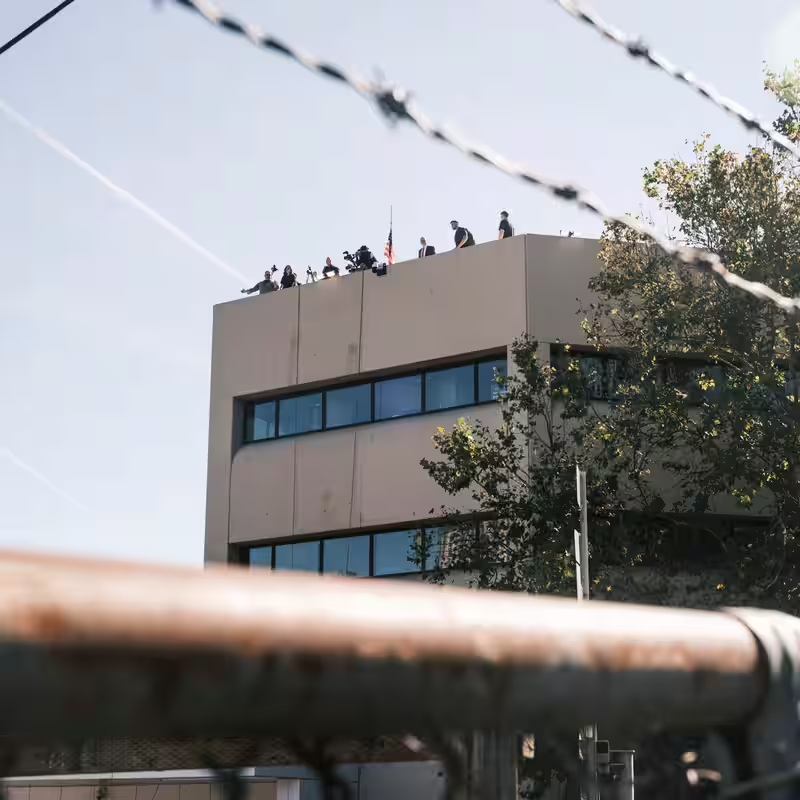In the battle over Portland’s image—and the deployment of federal forces to Oregon’s largest city—a new front has opened: social media. Right-wing podcasters, streamers, and online influencers are playing a pivotal role in shaping the narrative that Portland is a “hellscape,” a term President Donald J. Trump has repeatedly used to justify sending National Guard and federal agents into the city.
What’s striking isn’t just the rhetoric—it’s how the White House is now actively amplifying these voices, blurring the line between grassroots commentary and official policy justification.
How the ‘Hellscape’ Myth Took Hold
The word “hellscape” entered the national lexicon in early 2025 when Trump, during a campaign rally in Arizona, described Portland as “burning, lawless, and overrun by anarchists.” Since then, the administration has leaned heavily on footage and commentary from right-wing digital creators to validate that claim—even as local officials and crime data tell a more nuanced story.
Portland’s violent crime rate remains below national averages, and property crime has declined since 2023. Yet viral clips—often edited, decontextualized, or years old—are being repackaged by influencers with millions of followers as “proof” of urban collapse.
Meet the Influencers Driving the Narrative
A handful of pro-Trump digital personalities have become go-to sources for the White House. Among them:
- Dave “The Sentinel” Ruiz: A former Marine turned livestreamer who posts daily from Portland’s downtown, often filming confrontations with protesters. His channel has grown from 200,000 to over 2 million subscribers since January 2025.
- Laura Chen: Host of the “Red Line Report” podcast, which frames Portland as a “failed liberal experiment.” Her recent episode, “Portland: America’s First Socialist City?” was shared by Trump on Truth Social.
- Mike “Patriot Mike” Delgado: A self-described “citizen journalist” whose drone footage of boarded-up businesses went viral. He now receives White House press credentials and briefs senior officials weekly.
From Social Media to Policy Justification
Internal communications obtained by The New York Times reveal that the Department of Homeland Security has cited influencer content in internal memos justifying the federal presence in Portland. One memo referenced a livestream by Ruiz showing “uncontrolled mob activity near federal courthouses”—though local police logs from that day recorded only a peaceful demonstration.
“They’re not just consuming this content—they’re weaponizing it,” said Dr. Elena Martinez, a media studies professor at Reed College in Portland. “When the president retweets a streamer who calls Portland a war zone, it becomes policy rationale.”
Local Pushback and Fact-Checking Efforts
Portland Mayor Ted Wheeler has called the “hellscape” label “dangerous misinformation” that endangers residents and deters tourism. Local journalists and nonprofits like Oregon FactWatch have launched initiatives to debunk viral claims, but they struggle to match the reach of algorithm-driven outrage content.
Impact on Federal Court Challenges
This influencer-driven narrative is now entering the legal arena. In a recent federal court hearing challenging Trump’s National Guard deployment, government lawyers cited “widespread public disorder” and referenced media reports—but not official crime statistics. Judge Michael W. Brown questioned the reliability of those sources, noting, “A viral TikTok is not a police blotter.”
Comparison: Portland Crime Stats vs. National Averages (2025)
| Metric | Portland | National Average |
|---|---|---|
| Homicides per 100k | 6.2 | 7.8 |
| Aggravated Assault | 184 per 100k | 250 per 100k |
| Property Crime | 1,920 per 100k | 2,100 per 100k |
Source: FBI Uniform Crime Reporting Program, 2025 Preliminary Data
What’s Next?
As the 2026 midterms approach, experts warn this fusion of influencer media and federal policy could spread to other cities. “Portland is the test case,” said Martinez. “If this works politically, we’ll see it replicated in Detroit, Philadelphia, maybe even Chicago.”
For now, right-wing influencers continue to stream from Portland’s streets—often flanked by federal agents—while the White House echoes their message from Washington.




